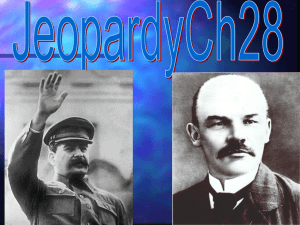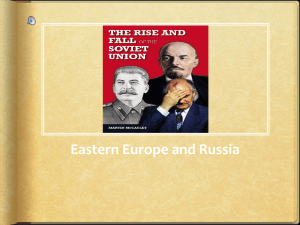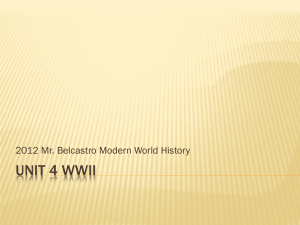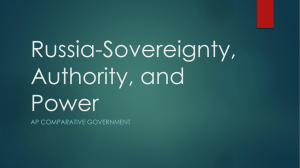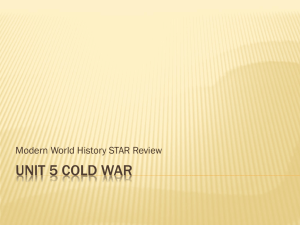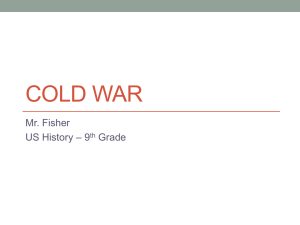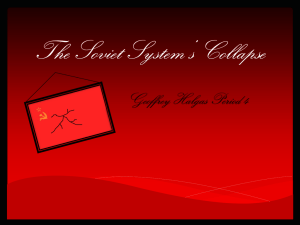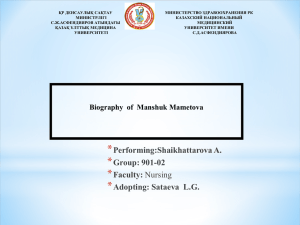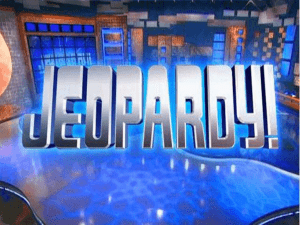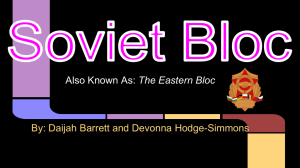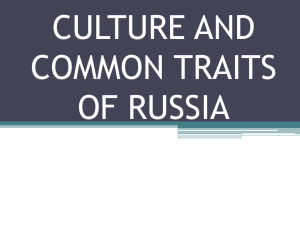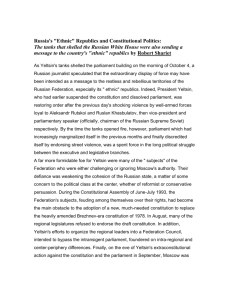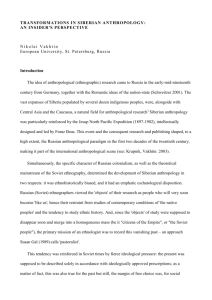L6 Collapse of the Soviet Bloc
advertisement
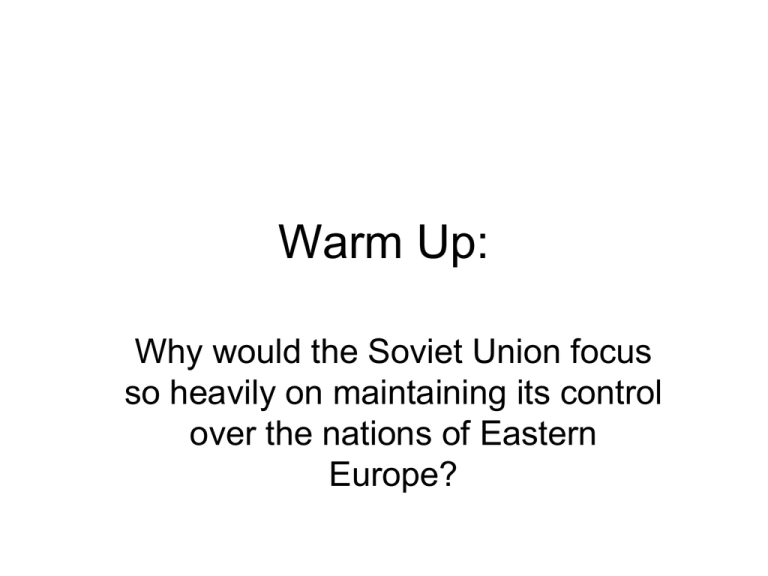
Warm Up: Why would the Soviet Union focus so heavily on maintaining its control over the nations of Eastern Europe? Chapter 30 Collapse of the Communist Bloc Tensions Berlin Wall • Life was so grim in communist East Germany that many fled to the West, • which led the Soviets to construct the Berlin Wall Tensions Hungary • Failed attempts at liberalization by Imre Nagy in 1956 Czechoslovakia • Prague Spring • Liberalization movement led by Alexander Dubcek crushed by Soviets Tensions • Brezhnev Doctrine – Soviet Union would support with all means at its disposal any communist nation in Eastern Europe facing internal strife Tensions Poland • Polish Cardinal, Karol Wojtyla, elected Pope John Paul II in 1978 • Lech Walesa, an electrician, led a massive strike demanding the right to form an independent trade union Solidarity Movement • Martial law declared, union outlawed • Union went underground with aid of the Catholic Church Tensions Poland • By 1989, Polish economy in shambles • Government forced to negotiate with Walesa and Solidarity • Government promised multiparty elections • All communist candidates defeated Collapse of the Soviet Bloc • Mikhail Gorbachev came to power in Moscow in 1985 Reform minded: • Glasnost - openness in debate • Perestroika - economic restructuring of the state - Focus more on consumer goods - Ultimately unsuccessfully • Opposed the Brezhnev doctrine Collapse of the Soviet Bloc 1989 • Communist regimes peacefully collapsed in Hungary, Bulgaria, Czechoslovakia, Albania, and East Germany • In 1990, the Berlin Wall was torn down, and East and West Germany were unified. • In Romania, dictator Nicolea Ceausescu violently tried to hold onto power • His government collapsed, he and his wife were executed on Christmas day, 1989 The Collapse of the Soviet Union Dissatisfaction in the USSR • Failed invasion of Afghanistan 1979-1988 • Nuclear disaster in Chernobyl 1989 The Collapse of the Soviet Union • In the Soviet Union nationalist movements gained strength after the dissolution of the Soviet Bloc • In 1990, non-communist parties were allowed to participate in government The Collapse of the Soviet Union • 1990 Lithuania declared its independence • Russia declared its laws superseded the laws of the USSR • In 1991, hard line Communist staged a coup while Gorbachev was on vacation, arresting him in his Crimean home • Boris Yeltsin, chairman of the Russian Parliament defied the coup The Collapse of the Soviet Union • One by one the Soviet Republics declared independence and left the USSR • In 1991 the USSR was dissolved soon after, Gorbachev resigned Collapse of the Soviet Union Russian Republic • In 1991, Yeltsin was elected president of the Russian Federation with 57% of vote • Moved economy toward free-market capitalism • Created economic turmoil - Hyperinflation - Corruption - Organized crime - Oligarchs Russian Republic Transformation to political democracy • Conflict over economic policy led parliament to impeach Yeltsin - 1993 • Yeltsin responded by ordering tanks shell Parliament • Parliament dissolved • new Constitution with increased powers of president • new legislative body, the Duma Russian Republic • In 1999, Vladimir Putin chosen Prime Minister - Former KGB agent • Won presidential election of 2000 • Beslan Massacre - Terrorist attack by Chechen separatist 2004 • Used as an excuse to end practice of popular elections for governors • Took increasing control over state media Russian Republic • Putin’s popularity grew as oil prices rose • Provided a huge boost to Russian economy • Won reelection in 2004 • Increased spending on military spending • Sought to dominate region • In 2008, supported Russian separatist in South Ossetia, Georgia Russian Republic • Replaced as President by Dimitri Medvedev in 2008 • Seen as a puppet to Putin • Putin became Prime Minister Ethnic Warfare in Yugoslavia • After the death of Tito in 1980, Slovenia and Croatia broke away from Yugoslavia and formed their own states • Bosnia declared independence in 1992 - Majority Muslim and Croats • Serb minority, with help of Yugoslavian president Slobodan Milosevic carried out “ethnic cleansing” • Forced removal, genocidal murder of Muslins and ethnic Croats • Serbs shelled the capital, Sarajevo on market days • American brokered peace, the Dayton Accords in 1995 Ethnic Warfare in Yugoslavia • Yugoslavia province of Kosovo began to seek greater autonomy • Mostly ethnic Albanians, province was important to Serbian nationalist identity • Milosevic ordered assault on Kosovo in 1998 • NATO in 1999 began a aerial bombardment of Serbia • After 3 months, Serbs withdrew • First offensive action taken by NATO Ethnic Warfare in Yugoslavia • In 2000 Milosevic lost elections • In 2001was turned over to the War Crimes Tribunal for “Crimes Against Humanity” • Died of heart attack during trial in 2006 Nationalist Movements France - Brittany and Corsica Great Britain - Scotland and Wales Italy - Sardinia and Tyrol Spain - Basque and Catalonia Ethnic Conflicts • • • • • • • • • Armenia and Azerbaijan Georgia and South Ossetia Georgia and Abkhazia Moldova North Ireland Iraq Israel-Palestine Kurdish-Turkish-Iraqi Chechnya Break Up of Czechoslovakia Velvet Divorce 1993 • Peaceful separation of Czech Republic and Slovakia
